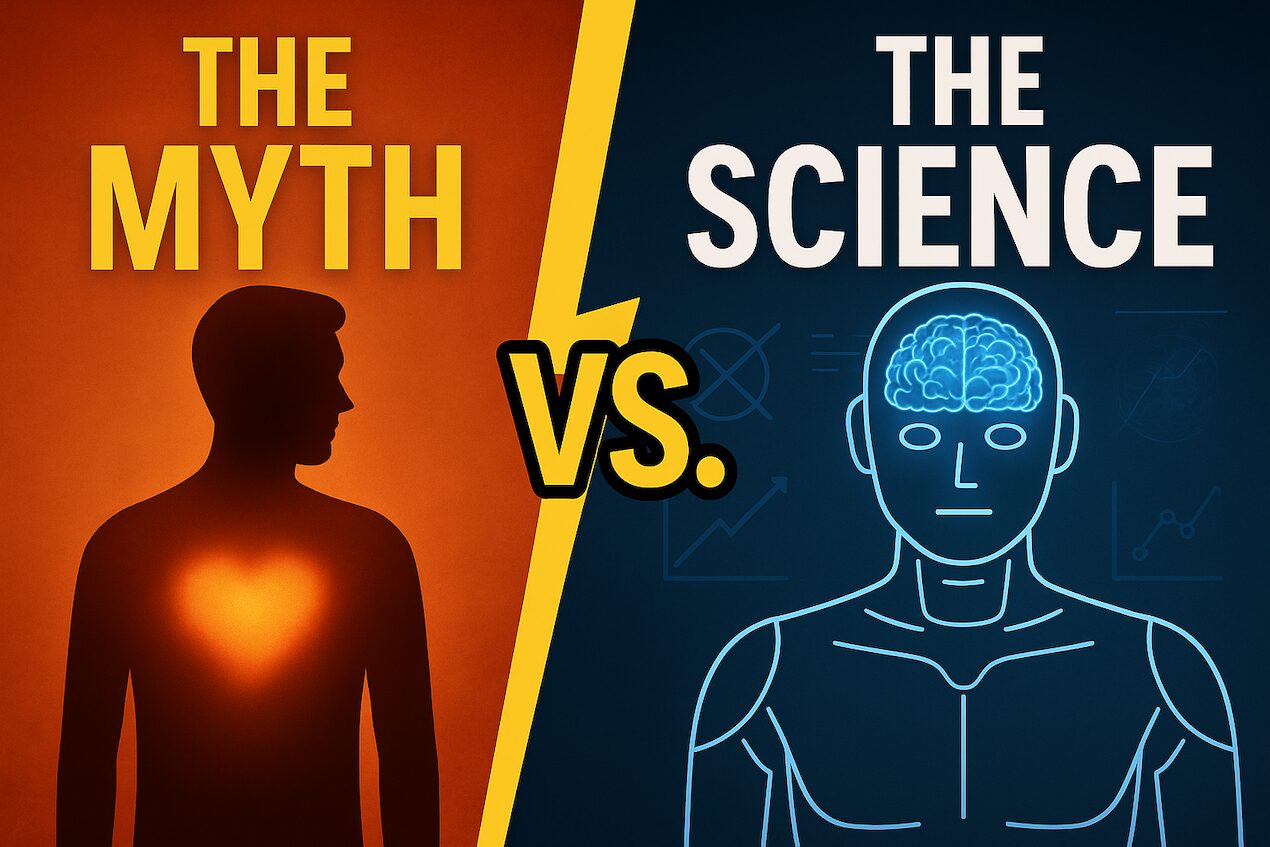
Does Science Really Say to Trust Your Gut? A Critique of Mel Robbins, and a Cultural Wake-Up Call
Mel Robbins recently dropped a podcast titled “Trust Your Gut: How to Make a Hard Decision.” It made the rounds on LinkedIn and, as you might expect, got a standing ovation. People love it when someone tells them their feelings are facts. But here’s the thing: it’s not just misleading. It’s flat-out wrong.
And it’s not just Mel. Pretty much every guru pushing the “trust your intuition” narrative is promoting a myth. And not an innocent one. This kind of advice sounds empowering, but it’s misguided at best. The science doesn’t support it. And if we’re serious about thinking clearly, we can’t let stuff like this slide.
Before we go further, here’s what you’ll get in this post: we’ll look at what the science actually says about decision-making and intuition, when your gut might help you and when it won’t, and why this kind of feel-good advice is part of a bigger cultural problem that’s eroding our ability to think clearly. And if you’ve ever felt pressured to “just trust your gut,” I’ll give you something better…an approach that actually works.
What Science Actually Says
Mel paints intuition as a kind of spiritual GPS, wired by “intelligent design” to point you toward your best life. Sounds nice. But research tells a very different story.
Let’s start with this: people often feel just as confident making decisions with half the information as with all of it. That’s called the illusion of information adequacy, and it’s not rare, it’s the norm. Even after getting all the facts, most people stick with their original choice. Because confidence and correctness aren’t the same thing.
McKinsey studied over 1,000 strategic decisions. The best predictor of success wasn’t speed, or instinct, or gut feel. It was process. Leaders who used structured decision frameworks saw a nearly 7% jump in ROI. That’s massive. It means process matters more than brilliance.
And here’s the kicker: the more certain someone feels, the less likely they are to revisit their assumptions, even when they’re wrong. That’s not intuition working. That’s bias digging in.
When Intuition Works, and When It Doesn’t
Let’s not throw intuition under the bus completely. Kahneman’s work on System 1 and System 2 thinking helps here. System 1 is fast, automatic, and unconscious. It’s what we mean when we talk about gut decisions. System 2 is slow, deliberate, and analytical.
Intuition can be helpful when we’re making low-stakes, familiar decisions, things we’ve done a thousand times. It’s efficient. That’s why an ER nurse or firefighter can spot a life-threatening problem in seconds. But that’s not magic. That’s experience.
But when the situation is new, complex, emotional, or high-stakes? Your gut isn’t wise. It’s guessing. And often, it guesses wrong.
What About “Intelligent Design”?
Mel tosses out the term “intelligent design” to describe this inner compass. I don’t know her theology, and I won’t pretend to. But as a Christian, I do want to speak directly to those who resonate with that language.
Yes, I believe God speaks to us. Yes, I believe the Holy Spirit prompts and nudges. I’ve experienced it. But we’re also warned, again and again, to test what we think we’re hearing.
“Beloved, do not believe every spirit, but test the spirits to see whether they are from God…” (1 John 4:1)
“Do not despise prophecies, but test everything; hold fast what is good.” (1 Thessalonians 5:20–21)
God doesn’t ask us to ignore reason. He asks us to use it. And blindly trusting our feelings, especially when the stakes are high, is not spiritual maturity. It’s immaturity dressed up as authenticity.
Why It Feels Good (and Why That’s the Problem)
This kind of advice lands because it’s simple. It feels empowering. It’s easy to digest and easier to share. Mel’s stories are moving. Who doesn’t love a redemption arc or a gut-driven turning point?
But stories aren’t data. And the fact that this message resonates so easily is exactly why we should be suspicious of it. It bypasses critical thinking. It sounds true because it feels true. That’s the trap.
We’ve trained ourselves to follow emotional resonance over intellectual rigor. And when someone wraps up bad advice in motivational packaging, we applaud instead of asking questions.
We’re in a Critical Thinking Crisis
This isn’t just about Mel. It’s about the culture that rewards vibes over verification. We idolize confidence. We chase clarity. And we end up building our lives on what feels good in the moment instead of what holds up under scrutiny.
Call it what it is. It’s a crisis. A crisis of discernment. And it’s why more people than ever are following bad advice with absolute certainty.
Here’s the Better Way
Start with structure. Bring in frameworks that force you to slow down, ask better questions, and test what you think you know. Surround yourself with people who’ll challenge you. Build a system that makes bad decisions harder to make.
Because yeah, feelings matter. But they’re not a compass. They’re input, not instructions.
Want to See the Science for Yourself?
I broke it all down in a short video: the illusions, the overconfidence, the traps leaders fall into when they confuse intuition for insight.
If you’ve ever felt confident and gotten burned, this’ll explain why. And more importantly, it’ll show you what to do differently.
One Last Thing
I don’t think Mel is trying to mislead anyone. I think she believes what she’s saying. But that doesn’t make it right. And staying silent while millions of people are told to “just trust your gut” isn’t something I can do in good conscience.
It’s okay to be blunt, as long as we’re fair. So here it is: her advice isn’t supported by science. It’s not supported by Scripture. And if we want to make better decisions, we’ve got to start asking better questions.

